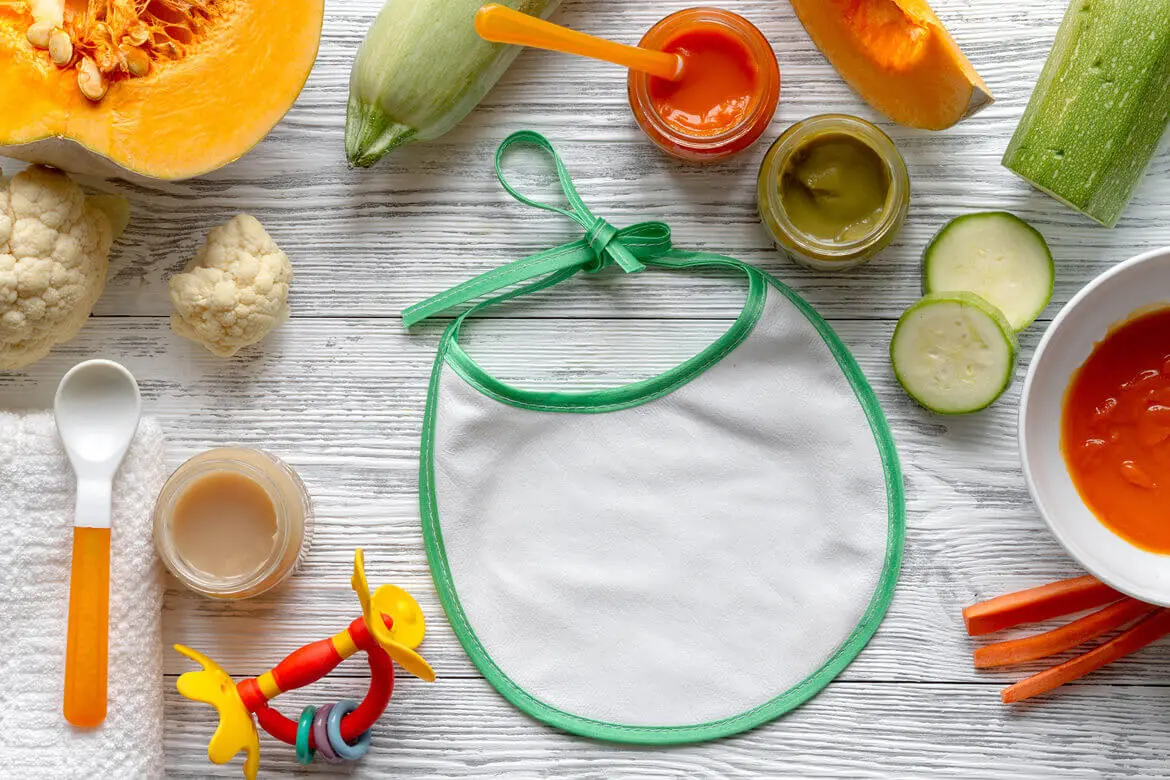-
-
Featured Care Areas


Source: Shutterstock
Here’s Everything New Mums Need to Know About Breastfeeding
Last updated: Friday, November 22, 2019 | 10 min reading time
While breastfeeding is a natural process, it does not come easily for many first-time mothers.
You probably have many questions about breastfeeding that you're embarrassed to ask, or you have no idea where to start. Here's what you should remember: the beginning can be tough and frustrating but with patience, effort, and lots of support, both you and your baby will get the hang of it.
If it is your first time breastfeeding, you may feel uncertain and anxious. Here's a guide to help you get started.
Do I HAVE to breastfeed?
Research has shown a wealth of benefits from breastfeeding, not just for the baby but for the mother as well.
Breast milk contains antibodies that cannot be engineered and has all the nutrition a baby needs for the first 6 months of life. It is easily digested by the baby, and its nutrients are uniquely tailored to meet the baby's developing needs.
Recent studies have shown that breastfeeding also helps in reducing the baby's risks of having food allergies or being overweight, says Lee Yee Hong, dietitian at Mount Elizabeth Novena Hospital.
While infant milk formula is a reasonable alternative, the widespread consensus among health experts is that breast milk is the best for babies.
For the mothers, breastfeeding protects against ovarian cancer and breast cancer. Breastfeeding helps a mum bond with her baby, and releases 'mothering hormones' like prolactin, which keeps the baby blues at bay, and oxytocin, which helps the uterus contract. Breastfeeding well also aids in getting mums back to their pre-pregnancy weight.
Did you know?
Mount Elizabeth Orchard and Mount Elizabeth Novena Hospital are the first two private hospitals to be accredited as baby-friendly by the World Health Organisation's (WHO) Baby Friendly Health Initiative (BFHI).
The criteria for this certification includes a commitment to 10 steps to encourage breastfeeding, such as facilitating skin-to-skin contact between mother and baby for at least one hour immediately after delivery.
Is it okay to just express breast milk?
There are mothers who physically don't enjoy the act of breastfeeding but want to provide breast milk for their babies. It is an individual choice. If pumping breast milk and giving it to your baby works better for you, you have the option to do so.
Lactation consultants agree that, where possible, direct breastfeeding is still the best. The baby suckling your breasts helps to stimulate and maintain the flow of breast milk, says Loh Lee Lian, lactation nurse at Mount Elizabeth Hospital.
Mothers who mostly breast pump tend to suffer from engorgement (where your breasts are swollen or filled with milk to the point of congestion), since it is harder to stimulate breast milk flow through pumping. Additionally, when you breast pump, you need to take care to prepare, clean and sterilise your equipment properly to avoid contamination.
Along with being more convenient than breast pumping, direct breastfeeding also helps you bond with your baby.
For whatever reason that a mum chooses to not to breastfeed directly, then expressing breast milk is still the next best option.
Regular breast pumping may help to sustain the milk flow. Lactation consultants recommend to alternate between using a breast pump and using your hand to express breast milk. This will help to maintain an easy flow of milk and avoid lumpiness.
You are also likely to express milk for storage once you return to work. Returning to work before your baby is 6 months requires expressing approximately every 3 hours when separated. This is to ensure that milk supply is high enough to provide for the time you are separated, and also to keep you comfortable.
Am I physically able to breastfeed if I have small or large breasts?
Most women are able to produce enough milk for their babies, regardless of what size their breasts are. You may find that your breasts get bigger over the course of your pregnancy, as the tissue necessary to facilitate breastfeeding is formed.
The amount of milk you are able to produce is not dependent on breast size. It depends on breast tissue. Some small-breasted women produce plenty of milk while some large-breasted women have a hard time producing enough. Producing enough milk is a common concern for many mothers, but most lactation consultants agree that mums are usually able to produce what their babies need.
Is it supposed to hurt?
Sore nipples are a common problem in the early weeks of breastfeeding. Your breasts have never been subjected to the teeth of a hungry newborn so it is normal for breastfeeding to hurt a little at the start.
However, cracked, bleeding nipples and constant pain are signals that your baby may not be latched on correctly. A lactation consultant can help correct your baby's latch, and can also offer advice on how to heal your nipples. Temporary use of a nipple shield and a professionally prescribed nipple cream or ointment may be helpful for the pain relief.
If you experience shooting pain, don't ignore it. A knot in the breast accompanied by soreness and redness could indicate a plugged milk duct (an area where milk flow is blocked or clogged), which can lead to mastitis – a nasty infection that requires antibiotics. If you experience such symptoms, contact your doctor immediately and get it treated. Continue nursing your baby often. As much as you may be tempted to stop nursing, breastfeeding actually helps to keep the milk flowing, releasing the clogs and getting the infection out to prevent further clogs.
How do I breastfeed more effectively?
Although it is one the most natural acts in the world, breastfeeding takes practice. Learning how to hold and support your baby in a comfortable position for both you and your baby calls for coordination – and patience. Finding a nursing hold that works for you and your infant is well worth the effort because you'll spend hours breastfeeding every day.
Before the arrival of your newborn, it is worthwhile attending breastfeeding classes. This allows you to have a rough concept of how breastfeeding works. For some, this may be all you need to fully grasp breastfeeding. For others, you might need a little more help. Don't be afraid to ask for help from a lactation consultant. With your baby in hand, your lactation consultant will be able to help you and your baby find the best position for breastfeeding.
Your diet and nutrition plays an important role in helping you breastfeed more effectively, says Lee Yee Hong. Taking in more calories, protein, and micronutrients, as well as drinking sufficient fluids, are necessary for successful breastfeeding.
How often should I breastfeed?
Your baby will tell you when it's time to feed by making 'feeding cues'. This could include nuzzling towards the breast, opening and closing the mouth, and sucking on their fingers. It's best to feed the baby when they give these cues rather than wait for them to cry, as it will be harder to feed the baby when they are in distress.
To help the baby figure out where lunch is coming from, rub their cheek with your nipple or finger to get your baby to turn towards your breast. Even if the baby is not getting much milk in the beginning, the stimulation will help your milk supply kick in. The first few nursing sessions may be as short as 5 minutes or as long as 45 minutes, but once you and your baby has coordinated a good latch, you will likely nurse for 20 – 40 minutes on each breast.
Why are my breasts hard as rocks?
Engorgement – where your breasts are swollen with milk – may happen a few days after your pregnancy, and can make your breasts feel hard and painful. Even if you nurse often, sometimes your breasts still feel engorged. It is hard for a baby to latch onto a hard-rock breast so here's how to relieve that painful feeling and get the milk flowing:
- Warm compresses can be used prior to nursing. Heat promotes the flow of milk. You'll lose a little milk in the process but if you're nursing regularly, there's nothing to worry about.
- Apply ice packs to ease the pain after nursing.
- Lying on your stomach relieves the pull of gravity and for some women, this soothes the pain.
- Expressing a small amount of milk can also help soften engorged breasts so your baby can latch on more easily.
How can I produce more milk?
Making every effort to breastfeed is well worth the while, because breast milk is the best food you can give your newborn during at least the first year of life. But some women do have problems with their milk supply.
The most common causes of low milk supply are inadequate food and fluid intake, fatigue, high stress levels, and feeding your baby too infrequently or for only short periods of time.
Some commonly used herbal galactagogues (milk production stimulants) include herbs such as fenugreek and milk thistle, says Lee Yee Hong. However, she advises that herbs must be used with caution, as they may contain chemical substances that may be dangerous your baby.
Here are some ways to counter low milk supply:
- Eat a healthy diet of about 2,500 calories daily. Breastfeeding will help you shed pregnancy weight so it's important you feed your body with the required nutrients in order to maintain your health even while losing weight.
- Drink plenty of water. Your body can't produce milk if it is dehydrated.
- Get as much restorative nightly sleep as you can, and nap during the day when your baby is sleeping.
- Breastfeed often, because the more often and the longer your baby latches on to suckle, the more milk you'll produce.
- Your doctor may prescribe some medications that may help to raise prolactin and stimulate milk supply.
What should I look for in a breast pump?
From handheld to electric, there are many kinds of breast pumps. They help to relieve engorgement and may allow you to prepare some reserve bottles so you can leave your little one with a sitter for a few hours. When deciding which breast pump to purchase, here are a few questions to ask yourself:
- How often will you use the breast pump? If you'll be away from your baby only occasionally and your milk supply is well-established, a simple hand pump might be all you need.
- Do you need to pump as quickly as possible? A typical pumping session lasts about 10 – 15 minutes a breast. If you'll be pumping at work or in other time-crunched situations, you might want to invest in an electric breast pump that allows you to pump both breasts at once.
Is it normal to leak?
As a new mother's milk supply gets established, it is not uncommon to experience some leakage. At this point, breast pads can be your best friend. Leaking breasts are a reminder that lactation is going well. It's also the body's way of preventing engorgement and relieving that feeling of fullness you may get in your breasts.
Unfortunately, leaking is unpredictable. Some mums have their breast milk leak just by thinking about their baby or hearing a baby cry. When that happens, bring your arms up firmly over your breast for a minute or two. You might also leak during sex and that is totally normal.
Can I continue breastfeeding if I have a cold or the flu?
There are very few illnesses that require a mother to stop nursing. Since most illnesses are caused by viruses that are mostly contagious before you realise you're sick, your baby has already been exposed before you even develop symptoms. Continuing to breastfeed will help to protect your baby from infection because your body produces antibodies specific to the bug that is causing the infection, and you pass the antibodies onto your baby in your breast milk.
Breastfeeding will also help you to get better rest. As you breastfeed, your body releases the hormone oxytocin which gives a calming effect and helps nursing mums to relax.
As you breastfeed and get enough rest, do remember to get plenty of fluids because you don't want to become dehydrated. Dehydration can affect your milk supply during and immediately after your illness.
Is is alright to consume alcohol while breastfeeding?
According to Lee Yee Hong, you are recommended to drink no more than 0.5 grams of alcohol per kilogram of your body weight. This means a mum who weighs 60kg may take roughly 2 cans of beer, 240ml of wine or 60ml of hard liquor in a day. Doctors recommend waiting at least 3 hours after your last sip of alcohol to breastfeed, to give your body enough time to expel the alcohol all together. If your baby needs a feeding within that 3-hour time frame, use stored breast milk or formula.
You'll want to avoid alcohol if you're having difficulty building a constant milk supply. Alcoholic consumption is not recommended if you are breastfeeding a pre-term, young or sick baby. Contrary to the folklore that beer helps to produce breast milk, alcohol disrupts the hormones of lactation.








